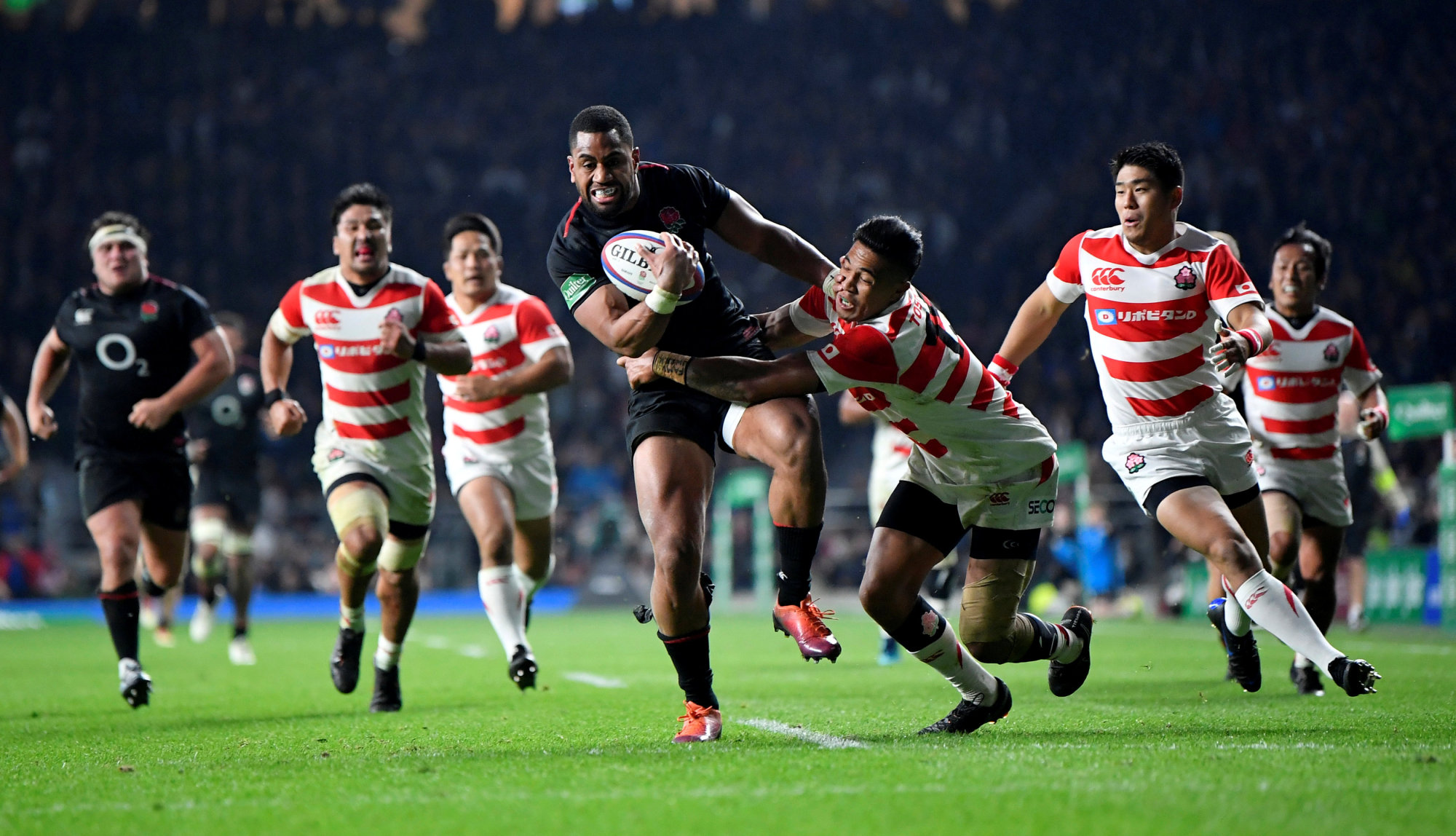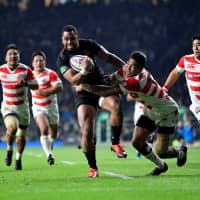Playing against my England team at Twickenham last month was incredible for Japan.
The Brave Blossoms also played New Zealand at home last month and Australia last year. Compare that to when I was Japan head coach. We played Georgia in Tbilisi and Romania in Bucharest. We went through Istanbul five times on that tour to get to places. It was like a backpackers' tour.
Now Japan plays at the best stadiums against the best teams. It's an incredible revolution, and it shows how much Japan has added to world rugby. There were 82,000 people at Twickenham, a full house.
We wanted a tough game to replicate the World Cup, so we deliberately set it up without underestimating Japan. At the World Cup, we're playing Tonga and then the United States four days later. Basically, if you've got a four-day prep then you've got one training session. So we picked the bottom half of our squad to play Japan in anticipation of our World Cup game against the U.S.
We thought Japan would be up for it. It was a big game for them and we tried to stir it up a little bit in the press. We wanted a really tough game and we got it. It was brilliant.
I've been watching Japan pretty closely and it's a good team. Jamie Joseph has done a great job with them. I wasn't surprised at all.
I thought Japan played really well and showed that it can adapt its game a little bit, because it has been playing quite a high-kicking game until it came to Twickenham. Against us, the Brave Blossoms played a lot more with the ball in hand, went through the phases a lot more and played some good rugby in a 35-15 loss to England.
We were behind at halftime but I was enjoying it. It was exactly what we wanted. It made our players adjust. We brought on Owen Farrell, and he had the leadership factor. Just bringing Owen on had the required effect in changing our game, not getting seduced into playing how Japan wanted us to play, and we ended up winning easily.
I spoke to a few of the Japan players after the game. They were disappointed. They put their best foot forward and they obviously wanted to win the game, but I think they were pleased with their efforts. They know they're working hard.
To me, the thing Japan has to turn around is it's got to start winning those games. That's what the Brave Blossoms were able to do when I was Japan coach. We were able to have a reasonable amount of success in winning games against teams that were ranked above us.
But I think it's about the evolution of the team. Japan's got a number of young players at the moment. When you bring a lot of young players in at crucial moments of the game, they do make mistakes. That probably costs Japan, because it's getting itself into good positions. But the point is, it does need to start winning those games against higher-ranked teams.
The thing the Brave Blossoms need to find is a balance between an all-phase game and a kicking game. That balance is crucial, how much you kick and how much you run.
The other big thing for me is that they've had a lot of changes in selections and it's hard to see what the starting XV is. I don't know who's injured and who's not, but I think that's going to be crucial for them, to build up a starting XV that has cohesion. One of the crucial things at the World Cup is the cohesion of your side.
They can use Super Rugby to play maybe seven games with their best XV as the Sunwolves, to get that cohesion. That's an ideal opportunity against good teams who are going to test them. When I was Japan coach, we had to play against Hong Kong, South Korea and the Philippines. The value of those games is minimal compared to playing against some of the best teams in the world at Super Rugby level.
They've got a great opportunity to get the team right. And they've got the players together for a longer period of time than anyone else in the world, which is a great advantage for them.
If Japan performs well at the World Cup and shows it's still a serious rugby nation, teams will want to play against it in test matches, because it brings something different.
The Brave Blossoms play the game differently and it's exciting for opposition fans to see them. But if they go to the World Cup and get beaten by Ireland and Scotland by 50 points, teams will start to wonder if there is any value in playing Japan. I think it's all going to be contingent on the results it gets at the World Cup.
I think Japan has the ability to cement its position as a top 10 or 12 team in the world and really say: "Right, we're a serious rugby nation now. You're not just going to play test matches against us because we're hosting the World Cup. You're going to play test matches against us because we offer value."
Eddie Jones is the head coach of England's national rugby team. He coached Japan from 2012 to 2015.




